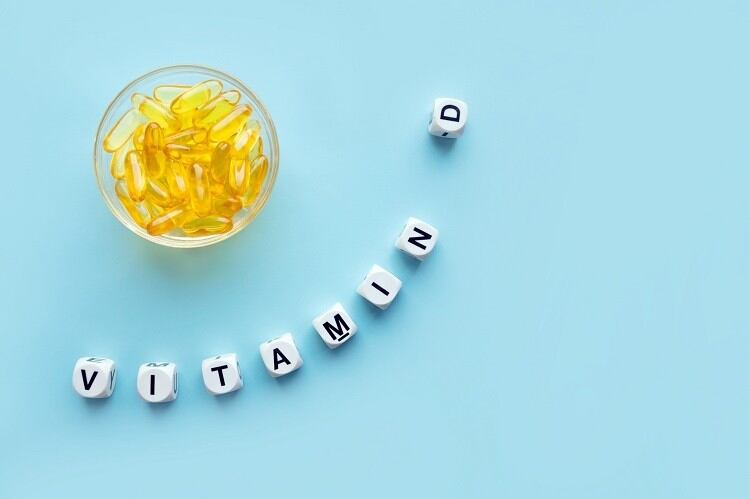The study came from The Irish Longitudinal Study on Ageing (TILDA) at Trinity College Dublin. It showed for the first time in Ireland that a deficiency in vitamin D is linked with a major risk for depression.
Vitamin D deficiency was associated with a 75% increase in the risk of developing depression.
Published in The Journal of Post-Acute and Long-Term Care Medicine (JAMDA), the results are part of the most extensive representative study of its kind. Researchers examined the vitamin D status of older adults and depression and then re-examined the individuals four years later.
Other smaller studies have linked low vitamin D levels with depression, but few studies have followed up with the same people over time. Also, other studies did not take existing depression, chronic diseases, physical activity and cardiovascular disease into account. People taking anti-depressants and vitamin D supplements were not included in the study either.
The authors suggest that the findings could be due to the direct effect of vitamin D on the brain.
Ageing affects the structure and function of the brain and vitamin D may protect against these changes. Other research has linked low vitamin D status with neurodegenerative diseases such as Parkinson’s Disease, dementia and multiple sclerosis as well as a range of other chronic conditions.
Dr Eamon Laird was the senior study author and Research Fellow with TILDA. He said: “What is surprising is the large effect on depression even after accounting for other control variables. This is highly relevant for Ireland as our previous research has shown that one in eight older adults are deficient in the summer and one in four during the winter. Moreover, only around eight per cent of older Irish adults report taking a vitamin D supplement.”
“Given that vitamin D is safe in the recommended intakes and is relatively cheap, this study adds to the growing evidence on the benefits of vitamin D for health. It also helps to continue to impress the need on our public health bodies to develop Irish vitamin D recommendations for the general public. Up to this point, these are severely lacking.”
Vitamin D is different from other vitamins - chemically speaking it is more a hormone than a vitamin. As well as being vital for healthy bones and teeth, vitamin D also regulates cell growth, neuromuscular and immune function, and reduction of inflammation.
Unlike other vitamins, our primary source is not from food – most of our vitamin D is made by the skin when UVB light reacts with a fatty cholesterol-like substance in the skin (hence it is also called the sunshine vitamin). So, you would think that in Australia, the sunburnt country, Australians would not be short of vitamin D. But you’d be wrong.
Australians and vitamin D deficiency
Vitamin D deficiency is surprisingly common and affects a large proportion of Australians.
One in three Australians is deficient in vitamin D and nearly three quarters (73 per cent) had levels considered by many experts as below the optimal for musculoskeletal health. Getting enough vitamin D through safe sun exposure, diet and/or supplements is vital for general good health and to help fight off chronic diseases.
Who’s at risk?
People at risk of low vitamin D levels include those who:
- Don’t get out much in the sun
- Are obese (vitamin D is stored in fat but doesn’t get out again until the fat is broken down, i.e. with when weight is lost).
- Have a medical condition that affects vitamin D metabolism.
- Have naturally dark skin (darker skin tones contain more melanin, which blocks the absorption of ultraviolet light) or cover up with clothing.
- Have very fair skin. Some research suggests that people with fair skin may be lacking in vitamin D, partly due to sun avoidance because of the fear of sunburn. Sunscreen also blocks vitamin D production as it does its important job of protecting the skin.
- Are an older Australian. According to Harvard Health, older people have lower levels of the substance in the skin that UV light converts into the vitamin D precursor and may be less efficient at producing vitamin D too.
Three tips to pass on to consumers to boost vitamin D levels
1. Take a walk
In winter, midday is the best time to get out; the energetic UV that produces vitamin D is not around in the early morning or late afternoon.
2. Chose vitamin D-containing foods
Around 10 per cent of vitamin requirements come from food - vitamin D rich foods include:
- Liver (this isn’t suitable if you’re pregnant or planning pregnancy as it can also contain very high levels of vitamin A).
- Oily fish – such as salmon, sardines and fresh tuna.
- Fortified foods – including breakfast cereals, eggs and milk. Full-fat milk contains the most vitamin D, and that’s one reason why whole milk is best for toddlers and young children. You can now also buy mushrooms that contain higher levels of vitamin D.
3. Select a supplement
Supplements can raise blood vitamin D levels when deficiency is moderate. Cholecalciferol (vitamin D3) 1000 IU or 25 micrograms is the supplement most commonly used; multivitamin supplements that contain 32–200 IU per unit don’t provide enough vitamin D to treat or prevent vitamin D deficiency.
If levels are very deficient (individuals should ask their doctor for a blood test to find out), vitamin D injections may be needed to raise blood levels quickly.
As mentioned, the sun is the primary source of vitamin D. However, for those who have a diagnosed deficiency exposing themselves to the amount of sun that may be needed to raise vitamin D levels could pose a health risk. A GP may recommend vitamin D supplements, which should be taken strictly as directed. Once low vitamin D is treated, the affected person will need to maintain normal vitamin D levels; healthcare practitioners can provide tailored advice.




